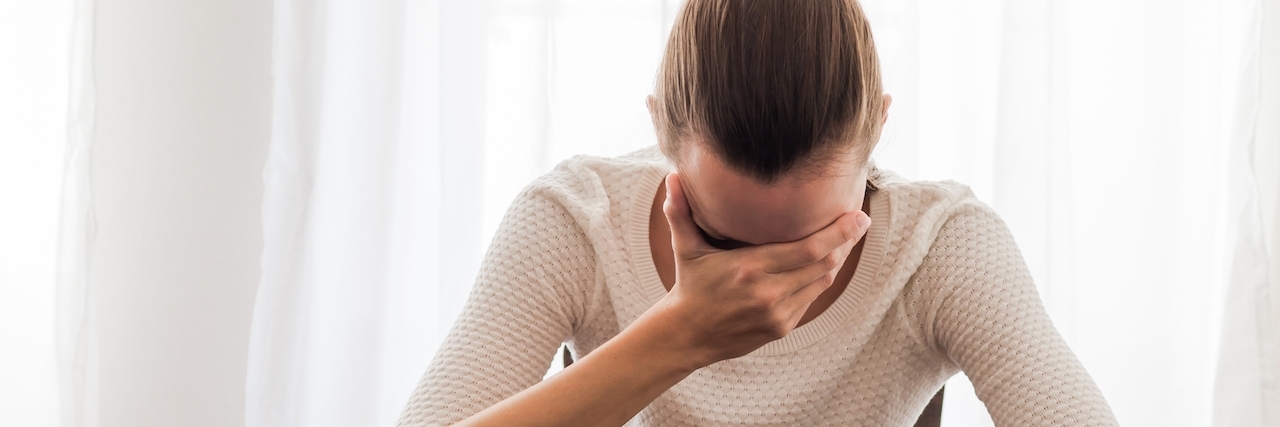When I Couldn't Accept That Calling Out Sick From Work Isn't Shameful
I’ll be the first to admit it: I was in complete denial about how much my chronic illness had progressed in the last year. I was working more than 10 hours a day, five days a week, and taking graduate school classes part-time. I would wake up at 4:30 a.m., go for a run, go to work, study after work, be in bed by 10 p.m. and repeat the process the next day. It’s now that I realize that staying busy was a way of distracting myself from how awful I really felt. This couldn’t be truer than when it came to my relationship with work.
I very rarely allowed myself to miss a day of work, even when my body was yelling at me to take a seat. On the rare chance that I did call out sick, I found myself over-apologizing for needing the day off, and feeling incredibly guilty for not being there. I remember one particular night. It was Wednesday night, and I was in the ER with a pain flare-up and shortness of breath. These symptoms were becoming routine, but rarely did I go to the hospital to get them evaluated. I stayed in the ER until 3:30 a.m. Most people wouldn’t have even thought twice about calling out of work sick the next day. What did I do? Went home, set my alarm for 5 a.m., and went to work by 7:30 a.m. because I couldn’t possibly miss the class I was scheduled to teach that morning. When I think back on this night, I realize how bizarre my thought process was at the time. I can’t help but wonder what made me make decisions like this over and over again. I think it’s partly because we live in a society that prides itself on how capable we are. What we do for a living defines us. If we can’t perform as well, or better than everyone else, to some people we may as well be considered useless.
Even when my symptoms had gotten so bad that I was forced (by my doctor) to take a disability leave from work, I was still so uncomfortable sharing this with anyone. My co-workers had no idea why I mysteriously disappeared. If friends I hadn’t spoken to in a while asked how work was going, I’d lie and say “same as always,” then quickly change the subject. Why was I so ashamed of the fact that I was finally taking care of myself? Was it because I was so paranoid of being labeled as “less than?” While I was on disability, when my breathing had become so unstable that a short walk left me starving for air, I was still worried about what people would think. I was terrified of running into anyone, for fear they would doubt how sick I really was. That’s the thing about invisible illnesses — even at your worst, you may not appear as what society would consider as “looking sick.”
If I could do one thing differently, I would have listened to my body sooner. I would have given it the attention it needed more often. I would have given myself the grace that I deserved. After all, I was only blessed with one body, and it is my job to take care if it the best that I can, despite what people may think.
The Mighty is asking its readers the following: What’s one secret about you or your loved one’s disability and/or disease that no one talks about? Check out our Submit a Story page for more about our submission guidelines.

